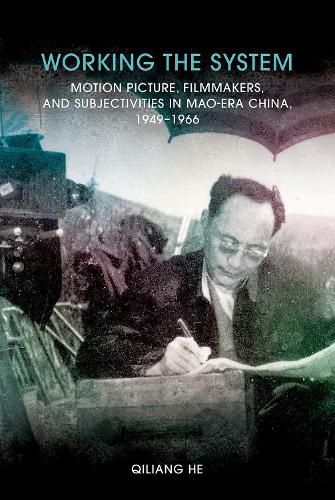Readings Newsletter
Become a Readings Member to make your shopping experience even easier.
Sign in or sign up for free!
You’re not far away from qualifying for FREE standard shipping within Australia
You’ve qualified for FREE standard shipping within Australia
The cart is loading…






In Working the System: Motion Picture, Filmmakers, and Subjectivities in Mao-Era China, 1949-1966, Qiliang He inquires into the making of the new citizenry in Mao-era China (1949-1976) by studying five preeminent Shanghai-based filmmakers. These case studies shed light on how individuals' subjectivities took shape in the cinematic arena under a new sociopolitical system after 1949. He suggests that a filmmaker's subjectivity was not fixed or stable but constantly in flux, requiring a host of "subjectivizing practices" to (re)shape and consolidate it. These filmmakers endeavored to reap maximal benefits from Mao's sociopolitical system and minimize the disadvantages that would make them victims under the system. In short, Qiliang He argues that the filmmakers not only worked under the socialist system imposed upon them but also worked the system in their best interests.
$9.00 standard shipping within Australia
FREE standard shipping within Australia for orders over $100.00
Express & International shipping calculated at checkout
In Working the System: Motion Picture, Filmmakers, and Subjectivities in Mao-Era China, 1949-1966, Qiliang He inquires into the making of the new citizenry in Mao-era China (1949-1976) by studying five preeminent Shanghai-based filmmakers. These case studies shed light on how individuals' subjectivities took shape in the cinematic arena under a new sociopolitical system after 1949. He suggests that a filmmaker's subjectivity was not fixed or stable but constantly in flux, requiring a host of "subjectivizing practices" to (re)shape and consolidate it. These filmmakers endeavored to reap maximal benefits from Mao's sociopolitical system and minimize the disadvantages that would make them victims under the system. In short, Qiliang He argues that the filmmakers not only worked under the socialist system imposed upon them but also worked the system in their best interests.